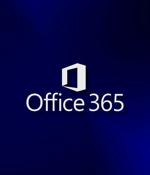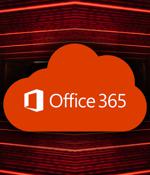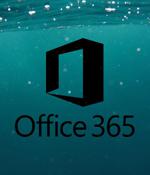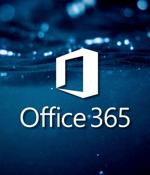Security News

Microsoft has added SMTP MTA Strict Transport Security support to Exchange Online to ensure Office 365 customers' email communication integrity and security. This new standard strengthens Exchange Online email security and solves several SMTP security problems, including expired TLS certificates, the lack of support for secure protocols, and certificates not issued by trusted third parties or matching server domain names.

Microsoft is updating Microsoft Defender for Office 365 with differentiated protection for enterprise accounts tagged as critical for an organization. "We are introducing differentiated protection for Priority accounts, which will provide users tagged as Priority accounts with a higher level of protection," Microsoft explains on the Microsoft 365 roadmap.

Attackers are trying out a new technique to widen the reach of their phishing campaigns: by using stolen Office 365 credentials, they try to connect rogue Windows devices to the victim organizations' network by registering it with their Azure AD. If successful, they are ready to launch the second wave of the campaign, which consists of sending more phishing emails to targets outside the organization as well as within. "The victim's stolen credentials were immediately used to establish a connection with Exchange Online PowerShell, most likely using an automated script as part of a phishing kit. Leveraging the Remote PowerShell connection, the attacker implemented an inbox rule via the New-InboxRule cmdlet that deleted certain messages based on keywords in the subject or body of the email message," the team explained.

A new phishing campaign impersonating the United States Department of Labor asks recipients to submit bids to steal Office 365 credentials. The phishing campaign has been ongoing for at least a couple of months and utilizes over ten different phishing sites impersonating the government agency.

Phishers are creating Adobe Creative Cloud accounts and using them to send phishing emails capable of thwarting traditional checks and some advanced threat protection solutions, Avanan security researcher Jeremy Fuchs warns. This new wave of attacks started in December 2021, and they are exploiting the fact that Adobe's apps are designed to foster collaboration by sharing documents.

Attackers are leveraging Adobe Creative Cloud to target Office 365 users with malicious links that appear to be coming legitimately from Cloud users but instead direct victims to a link that steals their credentials, researchers have discovered. Though attackers are primarily targeting Office 365 users - a favorite target among threat actors - researchers have seen them hit Gmail inboxes as well, Jeremy Fuchs, cybersecurity research analyst at Avanan, told Threatpost.

US universities are being targeted in multiple phishing attacks designed to impersonate college login portals to steal valuable Office 365 credentials. These campaigns are believed to be conducted by multiple threat actors starting in October 2021, with Proofpoint sharing details on the tactics, techniques, and procedures used in the phishing attacks.

A persuasive and ongoing series of phishing attacks are using fake Office 365 notifications asking the recipients to review blocked spam messages, with the end goal of stealing their Microsoft credentials. Instead of reaching the Office 365 portal when clicking the 'Review' button, they are sent to a phishing landing page that will ask them to enter their Microsoft credentials to access the quarantined spam messages.

Microsoft is rolling out Built-In Protection to Defender for Office 365, a new feature that would automatically enable recommended settings and policies to make sure all new and existing users get at least a basic level of protection.Microsoft Defender for Office 365 provides Office 365 enterprise email accounts with automated attack remediation and defends them from various threats, including business email compromise and credential phishing.

A surge in spearphishing emails designed to steal Office 365 credentials were rigged to look like they came from a Kaspersky email address. Office 365 credentials are a common target for phishing attacks.